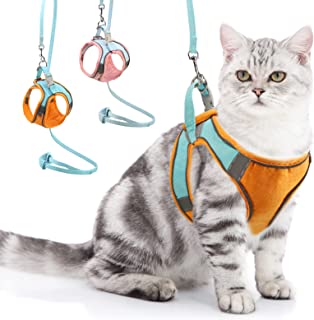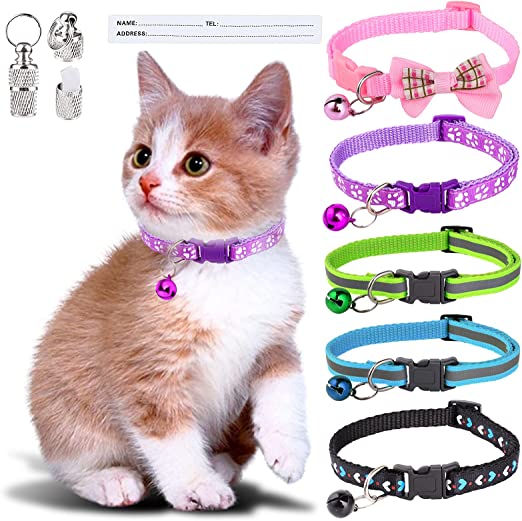PETBLOG
Heartworm disease in Dogs: Symptoms, Prevention, and Treatment
Introduction
Heartworm disease is a serious and potentially fatal disease that affects dogs, cats, and other mammals. It is caused by a parasitic worm called Dirofilaria immitis, which is transmitted through mosquito bites. Heartworm disease can cause serious damage to the heart, lungs, and other organs, and can be difficult and expensive to treat. In this article, we will discuss the main symptoms of heartworm disease, how to prevent it, and offer 5 P&F Tips to keep your furry friend safe and healthy.
Symptoms:
-
Coughing: A persistent cough is one of the most common signs of heartworm disease in dogs. It can be a dry, hacking cough or a cough that produces white or bloody foam.
-
Lethargy: Dogs with heartworm disease may appear tired, lethargic, and unwilling to play or exercise.
-
Weight Loss: Dogs with heartworm disease may experience weight loss despite a good appetite.
-
Breathing Difficulties: Dogs with heartworm disease may experience difficulty breathing, rapid breathing, or even fainting.
-
Swollen Belly: In advanced cases of heartworm disease, dogs may develop a swollen belly due to fluid buildup.
Prevention:
Preventing heartworm disease is much easier than treating it. Here are five P&F Tips to help keep your furry friend safe:
-
Regular Vet Checkups: Regular visits to the veterinarian are crucial for catching heartworm disease early, before it causes serious damage.
-
Monthly Preventative Medication: There are several different types of monthly heartworm preventative medication available, including pills, topical treatments, and injections. Talk to your veterinarian to determine which type is best for your pet.
-
Keep Mosquitoes Away: Mosquitoes are the primary carrier of heartworm disease, so it’s important to keep them away from your pet. Use mosquito repellent products, keep your pet indoors during peak mosquito activity times, and eliminate standing water in your yard where mosquitoes can breed.
-
Regular Exercise: Regular exercise and a healthy diet can help strengthen your pet’s immune system, making it less susceptible to heartworm disease.
-
Testing: Have your pet tested for heartworm disease every year, even if they are on preventative medication.
Upgrade your furry friend’s walks today with our comfortable and secure dog harness!
Classic Harness + Lead
Classic Harness + Lead
Adjustable Harness + Lead
Adjustable Harness + Lead
Collars
 Treatment:
Treatment:
Heartworm disease can be a serious and potentially life-threatening condition in dogs, so it’s important to seek veterinary care if your pet is diagnosed. Here are 5 bullet points on how to treat the disease:
-
Medication: Treatment for heartworm disease typically involves medication, which is prescribed by a veterinarian. The medication is designed to kill the adult worms, as well as any larvae and microfilariae.
-
Exercise restriction: During treatment, it’s important to restrict your dog’s exercise to prevent further damage to their heart and lungs.
-
Follow-up testing: After treatment, your dog will need to undergo follow-up testing to ensure that the worms have been successfully eliminated. This usually involves a blood test.
-
Prevention: The best way to treat heartworm disease is to prevent it from occurring in the first place. This can be done through the use of preventative medication, such as monthly heartworm pills.
-
Supportive care: In some cases, your dog may require supportive care during treatment, such as oxygen therapy or intravenous fluids, to help them recover. Your veterinarian will be able to provide the appropriate care and support your dog needs to recover from heartworm disease.
P&F Tips for treating rabies in dogs:
-
Regularly administer heartworm preventive medication: Consult with your veterinarian to determine the best preventive medication for your pet and administer it regularly, as directed. These medications are available in different forms such as tablets, topical solutions, and injections.
-
Keep your pet away from mosquitoes: Mosquitoes are the primary carriers of heartworm larvae. Keep your pet indoors during peak mosquito activity hours and use mosquito repellents or mosquito nets to protect them when outdoors.
-
Keep your pet’s environment clean: Clean up any standing water in your yard as it provides an ideal breeding ground for mosquitoes. Also, keep your pet’s environment clean and free of debris, as this can attract mosquitoes and other pests.
-
Regularly test your pet for heartworms: Regular heartworm testing is crucial to catch any infections early and start treatment promptly. Your veterinarian may recommend testing your pet annually or every six months depending on your location and other risk factors.
-
Consult with your veterinarian before traveling with your pet: If you plan to travel with your pet to a new location, consult with your veterinarian first. Some areas have a higher incidence of heartworm disease, and your pet may need additional preventive measures to stay protected.
Conclusion
heartworm disease is a serious and potentially fatal disease that affects dogs, cats, and other mammals. Symptoms include coughing, lethargy, weight loss, breathing difficulties, and a swollen belly. The good news is that heartworm disease is preventable. Follow these 5 P&F Tips to keep your furry friend safe and healthy: regular vet checkups, monthly preventative medication, keeping mosquitoes away, regular exercise, and testing. Remember to always consult with a licensed veterinarian before administering any medications or treatments to your pet and to follow the manufacturer’s instructions when using any pet care products.
Disclaimer: All information provided on pawsandfuzz.com, including pet articles and other articles, is for educational purposes only and should not be construed as advice or recommendations. Our goal is to provide accurate and up-to-date information, but we cannot guarantee that the information is 100% accurate. For advice or recommendations regarding their specific situation, the reader should always consult a professional or expert in the field. pawsandfuzz.com and the pet articles published on the website are not liable for any loss or injury arising from their use or reliance. Remember to always consult with a licensed veterinarian before administering any medications or treatments to your pet and to follow the manufacturer’s instructions when using any pet care products.
Unleash your pup’s cuteness with our comfy and cute dog harness
Classic Harness + Lead
Bandana
Leashes
Classic Harness + Lead
Recommended Products



















